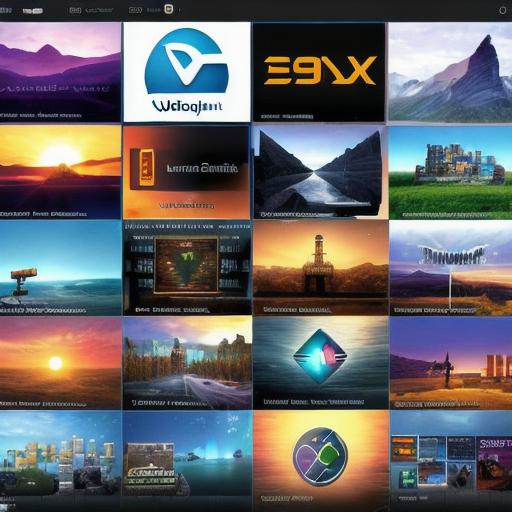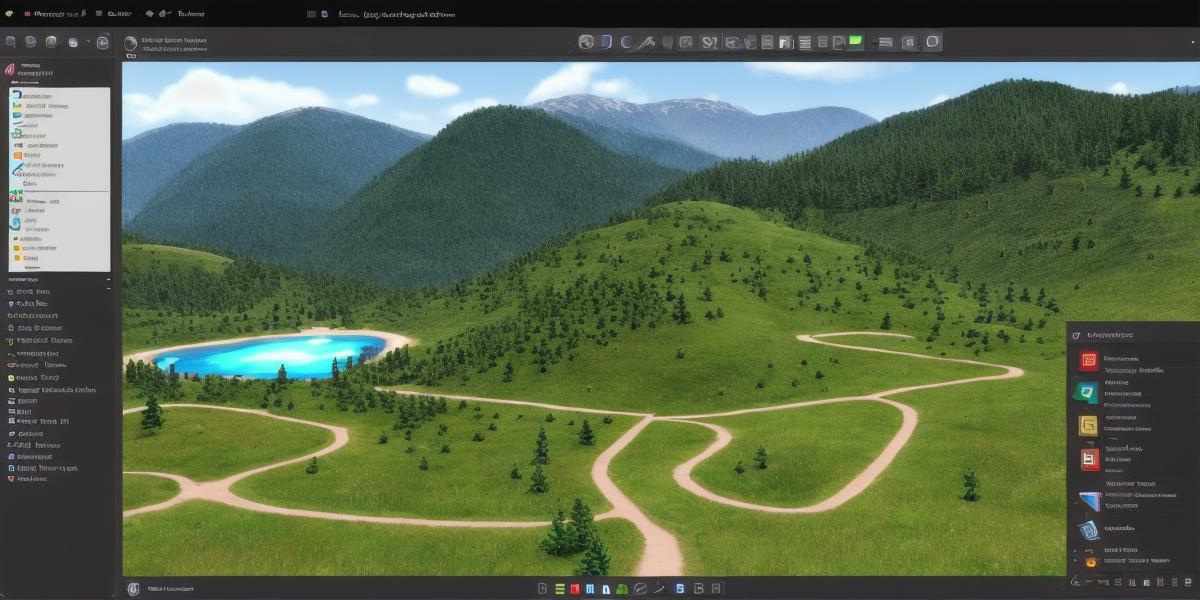Introduction
Linux is a powerful and versatile operating system used by millions of people worldwide. It’s open-source, which means anyone can contribute to its development and modify it to their needs. Linux has gained popularity among game developers due to its flexibility, stability, and ability to run on a wide range of hardware configurations. In this article, we will explore how to develop games on Linux using various tools and technologies. We will also discuss the benefits of developing games on Linux and compare it with other operating systems.
Getting Started: Setting up Your Development Environment
Before you start developing games on Linux, you need to set up your development environment. Here are the steps you can follow:
- Choose a Linux distribution: There are several Linux distributions available, such as Ubuntu, Debian, Fedora, and CentOS. Each distribution has its own features, but Ubuntu is the most popular and widely used distribution for game development.
- Install your preferred Integrated Development Environment (IDE): IDEs provide a complete environment for developers to write, compile, debug, and test their code. Some popular IDEs for Linux game development include Visual Studio Code, KDevelop, and Qt Creator.

- Download and install the necessary libraries and tools: Game development on Linux requires several libraries and tools such as SDL, OpenGL, GLFW, and GTK+. You can install these libraries using package managers like apt or yum.
- Set up your game engine: A game engine is a software framework that provides pre-built components for game development. Some popular game engines for Linux include Unity, Unreal Engine, and Godot.
Development Process: Writing and Testing Your Game Code
Once you have set up your development environment, you can start writing your game code. The development process involves several stages such as designing, coding, testing, debugging, and deploying. Here’s how you can develop a game on Linux:
- Design your game: Before you start coding, you need to design your game’s concept, graphics, sound, and gameplay mechanics. You can use tools like Blender, GIMP, or Inkscape for designing your game assets.
- Write the code: Once you have designed your game, you can start writing the code using your preferred programming language such as C++, Python, or Java. You can use your IDE to write and compile your code.
- Test your game: After you have written the code, you need to test it to ensure it works as expected. You can use tools like Valgrind or gdb to debug your code and fix any issues.
- Deploy your game: Once you are satisfied with your game, you can deploy it on various platforms such as Steam, Itch.io, or the official Linux game store.
Benefits of Developing Games on Linux
Developing games on Linux has several benefits, including:
- Wide range of hardware configurations: Linux can run on a wide range of hardware configurations, which means you can develop games that can run on low-end or high-end systems.
- Stability and reliability: Linux is known for its stability and reliability, which means your game will run smoothly without any crashes or bugs.
- Open-source development: Linux is an open-source operating system, which means anyone can contribute to its development and modify it to their needs. This makes it easier for game developers to customize the operating system to their specific requirements.
- Large community support: Linux has a large and active community of users and developers, which means you can get help and support whenever you need it.
- Cost-effective: Developing games on Linux is cost-effective as it’s free to use and distribute. This means you can focus on developing your game without worrying about the cost of the operating system.
Comparison with Other Operating Systems
Developing games on Linux has several advantages over other operating systems such as Windows and macOS. Here’s how Linux compares with other operating systems:
- Hardware compatibility: Linux can run on a wider range of hardware configurations than Windows or macOS, which means you can develop games that can run on low-end or high-end systems.
- Cost: Linux is free to use and distribute, which means you can focus on developing your game without worrying about the cost of the operating system.
- Customization: Linux is an open-source operating system, which means you can customize it to your specific requirements. This makes it easier for game developers to modify the operating system to their needs.
- Stability and reliability: Linux is known for its stability and reliability, which means your game will run smoothly without any crashes or bugs.
- Community support: Linux has a large and active community of users and developers, which means you can get help and support whenever you need it.
Conclusion
Developing games on Linux is a viable option for game developers due to its flexibility, stability, and ability to run on a wide range of hardware configurations. In this article, we have explored how to develop games on Linux using various tools and technologies. We have also discussed the benefits of developing games on Linux and compared it with other operating systems. Whether you are a beginner or an experienced game developer, developing games on Linux can be a rewarding experience.
